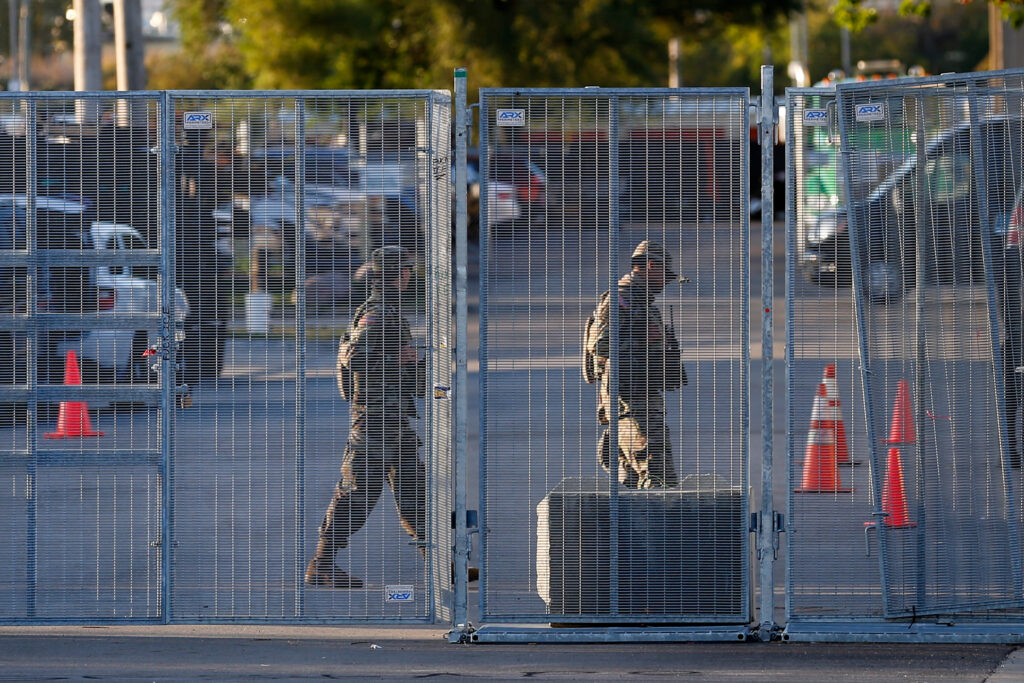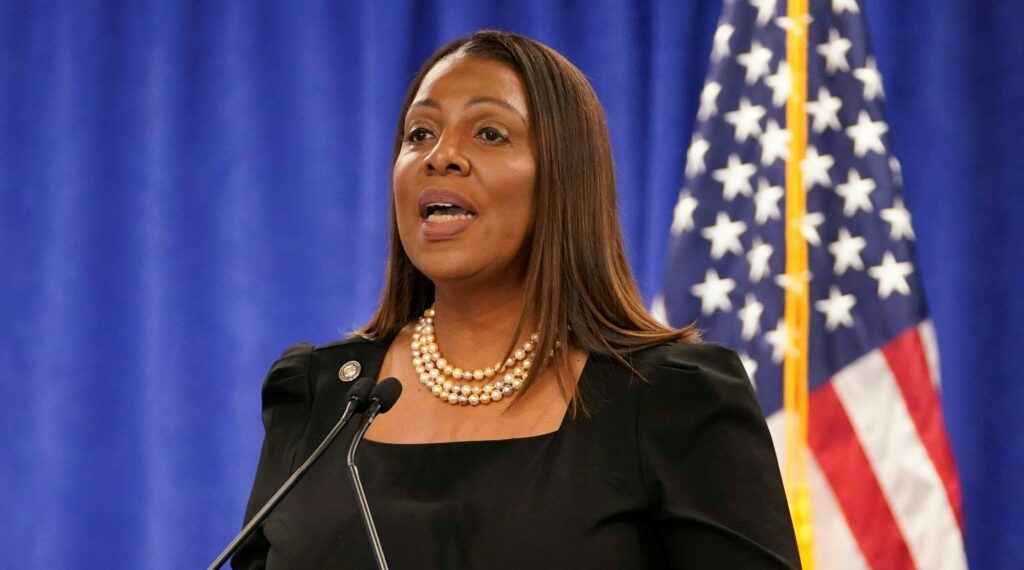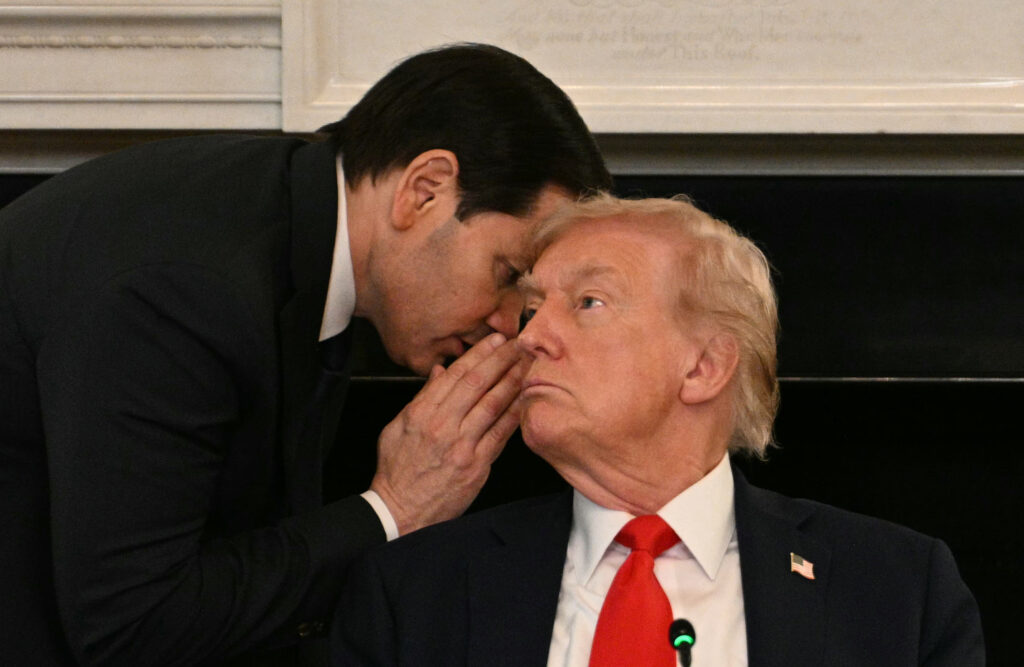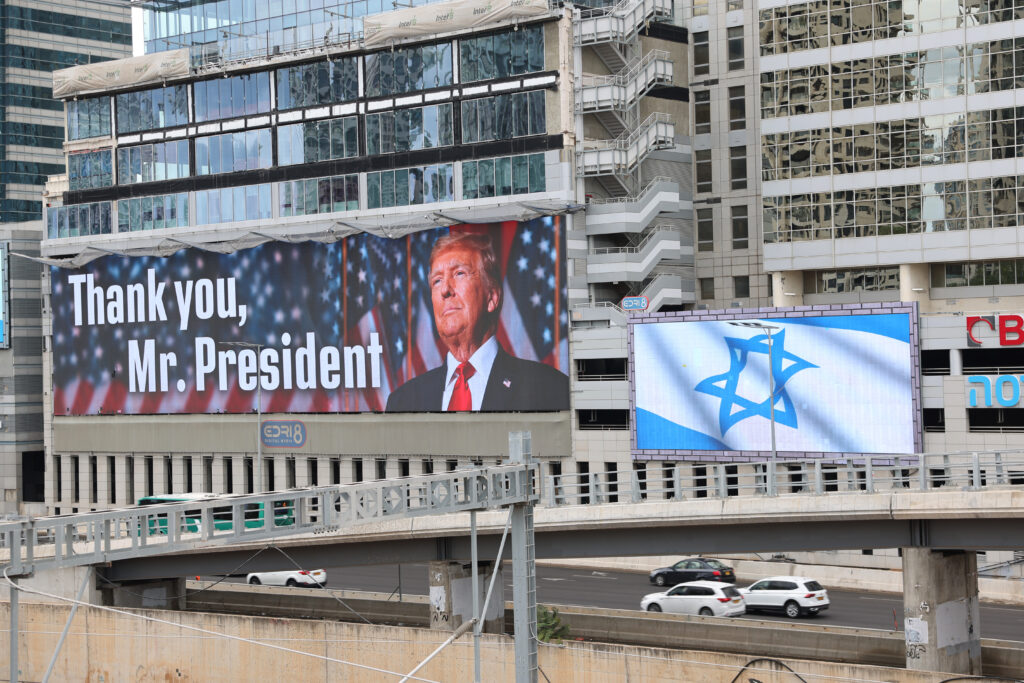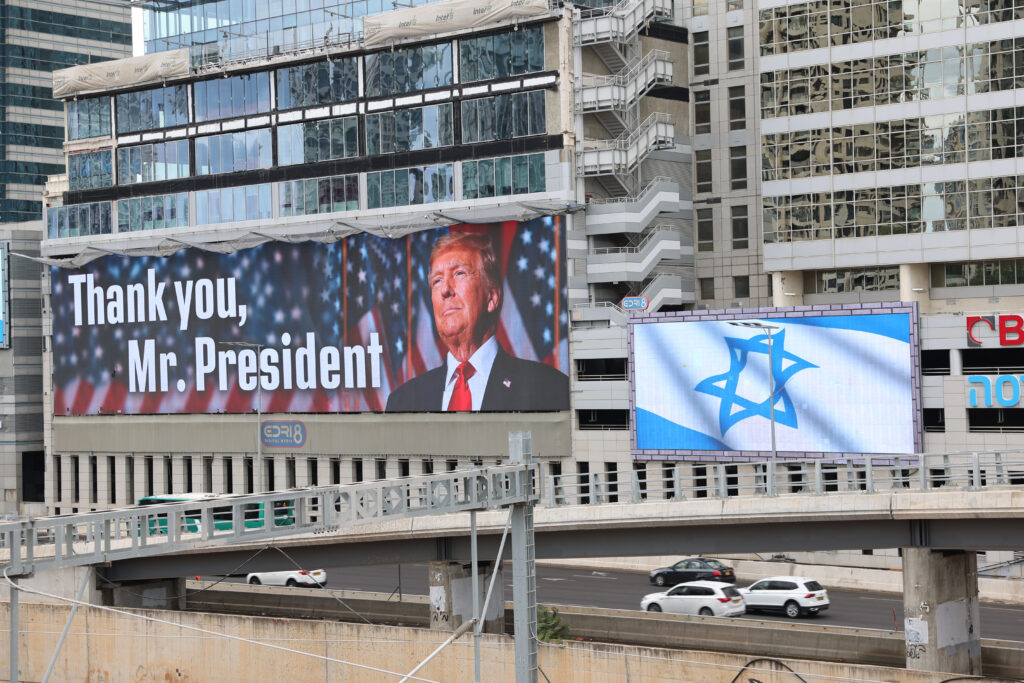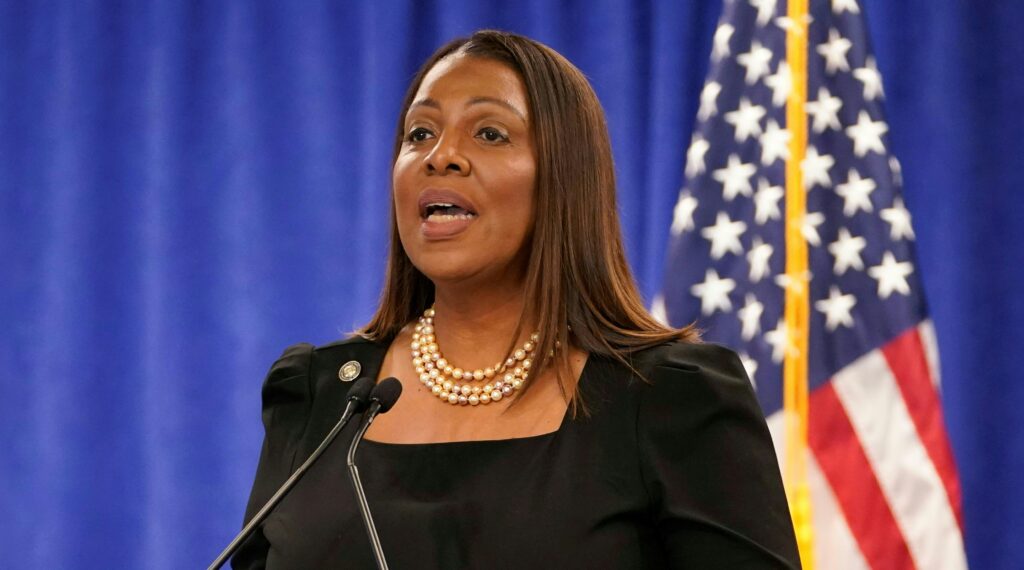Judge halts Trump’s Chicago troop deployment as Portland decision looms
A federal judge on Thursday ordered a temporary halt to President Donald Trump’s deployment of hundreds of National Guard troops in the Chicago area as part of his sweeping crime and immigration crackdown.Trump’s administration has argued the troops are necessary to protect immigration agents and facilities in America’s third largest city, falsely depicting it as a “war zone.”But local Democratic officials have said police and other law enforcement are perfectly sufficient, while arguing that Trump is purposefully provoking protests with its heavy handed operations.In her ruling from the bench, District Judge April Perry said she had doubts about the Trump administration’s reliability and worried the troops’ presence would “only add fuel to the fire,” the Chicago Tribune reported.She ordered an immediate halt to the troop deployment, lasting until October 23, rejecting the government’s argument that Trump cannot be second-guessed over such matters.Illinois Governor JB Pritzker, who has accused Trump of unconstitutional authoritarianism, hailed the ruling, saying on X: “Donald Trump is not a king — and his administration is not above the law.”At the same time, a three-judge appeals court panel in San Francisco was expected to rule on whether to lift another judge’s temporary block of a similar deployment in Democratic-ruled Portland, Oregon.Illinois and Oregon are not the first states to file legal challenges against the Trump administration’s extraordinary domestic use of the National Guard.Democratic-ruled California filed suit after the Republican president first sent troops to Los Angeles earlier this year to quell demonstrations sparked by a crackdown on undocumented migrants.A district court judge ruled it unlawful but an appeals court panel allowed the deployment to temporarily proceed.An AFP journalist who visited the Broadview facility on Thursday saw a few National Guard members and ICE personnel milling about on the other side of the fence.About 15 protesters hurled insults, calling the agents “human traffickers” and “Nazis.””Show your faces, you cowards!” they yelled. “Are your mommies proud of you?”The deployment in Chicago involves 200 National Guard troops from Texas and 300 from Illinois, the US Army Northern Command said. They have been mobilized for an initial period of 60 days.- Insurrection Act -Trump has said he could invoke the rarely used Insurrection Act — which allows the president to deploy the military within the United States to suppress rebellion — if courts or local officials continue “holding us up.”At a cabinet meeting on Thursday, Trump repeated his claims that crime is rampant in Chicago and Portland.”We’ve launched a historic campaign to take back our nation from the gangs and the street criminals, violent repeat offenders, illegal alien law breakers, domestic extremists and savage, bloodthirsty cartels,” he said.The Republican has been accused by critics of growing authoritarianism as he tries to fulfill his campaign promise to deport millions of illegal immigrants.Raids by armed and masked federal agents have sparked allegations of rights abuses and illegal detentions.Local officials argue that city and state law enforcement are sufficient to handle protests against ICE agents and street crime.Pritzker, seen as a potential Democratic candidate in the 2028 presidential election, has called Trump “unhinged.””He’s a wannabe dictator. And there’s one thing I really want to say to Donald Trump: if you come for my people, you come through me. So come and get me,” the governor said Wednesday.
La justice américaine inculpe une haute magistrate dans le viseur de Trump
Après l’ancien directeur du FBI, une autre bête noire de Donald Trump a été inculpée jeudi: la procureure générale de l’Etat de New York Letitia James, qui avait obtenu sa condamnation en 2024 dans une vaste affaire de fraude.La haute magistrate de 66 ans a été inculpée en Virginie par un grand jury, une commission de citoyens investie de pouvoirs d’enquête, sur des soupçons de fausses déclarations à l’occasion de l’obtention d’un prêt bancaire.”Nul n’est au-dessus des lois. Les accusations portées dans cette affaire concernent des actes criminels délibérés et de graves atteintes à la confiance du public”, écrit la procureure fédérale de Virginie Lindsey Halligan, à l’origine des poursuites, dans un communiqué.C’est cette même magistrate, une proche de Donald Trump auprès duquel elle travaillait comme conseillère à la Maison Blanche, qui en septembre avait lancé la procédure contre l’ex-chef de la police fédérale James Comey.Les faits visant Letitia James, élue du Parti démocrate, concernent une maison de Norfolk (Virginie) qu’elle possède, dont elle aurait déclaré faussement qu’elle était sa résidence principale dans des documents de prêt hypothécaire, ce qui lui aurait permis d’obtenir des conditions d’emprunt plus favorables.Cette dernière a aussitôt dénoncé des “représailles politiques”. “Nous combattrons vigoureusement ces accusations sans fondement”, écrit-elle.”Voilà à quoi ressemble la tyrannie”, a réagi pour sa part le ténor démocrate au Sénat Chuck Schumer.”Ce que nous voyons aujourd’hui n’est rien d’autre que l’instrumentalisation du ministère de la Justice pour punir celles et ceux qui tiennent les puissants pour responsables”, a commenté la gouverneure de l’Etat de New York, Kathy Hochul, elle aussi démocrate.- “Procureur dur” -Depuis plusieurs semaines, Donald Trump met la pression sur son ministère de la Justice pour obtenir des poursuites contre certains de ses adversaires politiques.Et Letitia James en est une de premier plan: elle est à l’origine des poursuites pour fraudes lancées contre lui et ses deux fils, Donald et Eric Jr.Ils ont tous trois été reconnus coupables d’avoir fait enfler de manière colossale durant les années 2010 la valeur des actifs de la Trump Organization – leurs gratte-ciel, hôtels de luxe ou golfs dans le monde entier – afin de bénéficier de prêts plus favorables de banques et de meilleures conditions d’assurance.Au terme d’un procès ultra-médiatisé qui s’était tenu en 2024, Donald Trump avait été condamné à une amende pharaonique de 464 millions de dollars.En août dernier, une cour d’appel de l’Etat de New York a annulé cette amende en invoquant un montant “excessif qui viole le huitième amendement de la Constitution des États-Unis”, qui interdit les condamnations disproportionnées.- Obama visé -Le président a souvent déclaré que Letitia James devrait être poursuivie et qualifié cette magistrate afro-américaine de “corrompue” et “raciste”.Fin septembre, le procureur fédéral de Virginie Erik Siebert avait démissionné après avoir refusé d’engager des poursuites contre Letitia James. Donald Trump avait alors nommé Lindsey Halligan, pour le remplacer, évoquant le besoin d’un “procureur dur” pour seconder sa ministre de la Justice.Donald Trump se défend d’avoir une “liste” de cibles. Reste qu’il a identifié une série de personnalités, élus, anciens conseillers ou magistrats, coupables, selon lui, de toutes sortes de malversations, mais surtout de s’être opposés à lui.Le président américain a ainsi menacé le milliardaire philanthrope George Soros. Il a appelé publiquement à poursuivre le sénateur démocrate Adam Schiff, comme il l’a fait pour Letitia James.Une autre bête noire de Donald Trump, son ancien conseiller à la Sécurité nationale John Bolton, a lui vu son domicile perquisitionné par le FBI.Le président américain s’en est aussi pris à Barack Obama, accusé de “trahison”. Mais toute tentative de le traîner en justice pourrait se heurter à un principe d’immunité présidentielle récemment posé par la Cour suprême, à la demande de Donald Trump lui-même.
Israel says ‘all parties’ signed phase one of Gaza deal
Israel said Thursday all parties have signed the first phase of a Gaza ceasefire and hostage release deal, adding that Hamas freeing the captives would “bring the end to this war”.The agreement in Egypt follows a 20-point peace plan for Gaza announced last month by US President Donald Trump, after more than two years of war sparked by Hamas’s October 2023 attack on Israel.Trump said he planned to leave on Sunday for the Middle East. Egypt is planning an event to celebrate the conclusion of the agreement, with the US president also expected to stop in Israel and consider going to devastated Gaza.Despite celebrations in Israel and Gaza and a flood of messages from world leaders hailing the deal, numerous issues remain unsettled, including the plan’s call for Hamas to disarm and a proposed transitional authority for Gaza led by Trump himself.Senior Hamas official Osama Hamdan said the Palestinian Islamist movement rejected the latter.”No Palestinian would accept this. All the factions, including the Palestinian Authority, reject this,” Hamdan told Qatar-based broadcaster Al Araby.Trump said the issue of Hamas surrendering its weapons would be addressed in the second phase of the peace plan.”There will be disarming,” he told reporters, adding there would also be “pullbacks” by Israeli forces.The Israeli government said the ceasefire was to take hold within 24 hours of meetings on Thursday to approve the deal, under which the military should withdraw from Gaza.Early on Friday, the office of Israeli Prime Minister Benjamin Netanyahu said the government had “approved the framework for the release of all the hostages — both the living and the deceased”.Netanyahu had faced pushback from his far-right allies, with National Security Minister Itamar Ben Gvir saying he would vote against the agreement, calling the plan to release thousands of Palestinian prisoners in exchange for the 47 hostages remaining in Gaza “an unbearable heavy price”.- ‘Tears of joy’ -Confirming that the first-phase draft had been signed by “all parties” early Thursday, Israeli government spokeswoman Shosh Bedrosian told journalists that “all of our hostages, the living and the deceased, will be released 72 hours later, which will bring us to Monday”.Foreign Minister Gideon Saar said the release of the hostages “should bring the end to this war”.In a rare interview with an Israeli network, Palestinian president Mahmud Abbas told the Channel 12 broadcaster that “what happened today is a historic moment”.”Today, we are very happy that the bloodshed has ceased. We hope it remains this way, and that peace, security, and stability will prevail between us and Israel.”US envoy Steve Witkoff and Trump’s son-in-law Jared Kushner travelled to Jerusalem Thursday night, where they met both Netanyahu and Israeli President Isaac Herzog, their offices said.Israeli media reported that the pair later participated in the government meeting held to approve the plan.The deal, thrashed out in indirect, closed-door talks in the Red Sea resort town of Sharm El-Sheikh, also envisions a surge of aid into Gaza, where the UN has declared famine.The announcement sparked joy in Gaza, much of which has been flattened by Israel’s offensive.”Honestly, when I heard the news, I couldn’t hold back. Tears of joy flowed. Two years of bombing, terror, destruction, loss, humiliation, and the constant feeling that we could die at any moment,” displaced Palestinian Samer Joudeh told AFP.In Israel, thousands of people gathered in a Tel Aviv square to celebrate, some holding photos of hostages still in Gaza and waving Israeli and US flags.”We have been waiting for this day for 734 days. We cannot imagine being anywhere else this morning,” said Laurence Ytzhak, 54.While Arab leaders said they hoped the ceasefire would lead to a permanent solution to the Israel-Palestinian conflict, there was no indication the talks were addressing any of the deeper issues at stake.Hamas has submitted a list of Palestinian prisoners it wants released from Israeli jails in the first phase.The list names 250 Palestinians sentenced to life imprisonment and 1,700 others arrested by Israel since the war began, according to a Hamas source.High-profile inmate Marwan Barghouti — from Hamas’s rival, the Fatah movement — is among those the group wanted to see released, according to Egyptian state-linked media.However, Israel said Barghouti would not be part of the exchange.- Explosions continue -The talks were taking place under the shadow of the second anniversary of the October 7, 2023 Hamas attack, which resulted in the deaths of 1,219 people, mostly civilians, according to an AFP tally based on official Israeli figures.Militants also took 251 people hostage into Gaza, where 47 remain, including 25 the Israeli military says are dead.Israel’s retaliatory campaign in Gaza has killed at least 67,194 people, according to the health ministry in the Hamas-run territory, figures the United Nations considers credible.The data does not distinguish between civilians and combatants but indicates that more than half of the dead are women and children.Gaza’s civil defence agency, a rescue force operating under Hamas’s authority, reported several strikes on the territory after the announcement of the deal.AFP journalists and witnesses said more explosions and artillery fire could be heard Thursday evening in southern and central Gaza.burs/ser/jhb/jsa/sbk/mjw
Le gouvernement israélien approuve l’accord sur Gaza
Le gouvernement israélien a indiqué tôt vendredi avoir approuvé la première phase de l’accord de cessez-le-feu à Gaza et de libération des otages après de fortes pressions du président américain, Donald Trump, pour mettre fin à la guerre dans le territoire palestinien.”Le gouvernement vient d’approuver le cadre pour la libération de tous les otages – qu’ils soient vivants ou décédés”, indique le bureau du gouvernement, permettant l’entrée en vigueur de l’accord.Cet accord conclu la nuit précédente en Egypte s’intègre dans un plan de paix en 20 points pour Gaza annoncé le 29 septembre par M. Trump, après deux ans d’une guerre dévastatrice déclenchée par l’attaque sans précédent du mouvement islamiste palestinien Hamas en Israël le 7 octobre 2023.Sur les 251 personnes enlevées et emmenées à Gaza ce jour-là, 47 y sont toujours retenues, dont au moins 25 sont mortes, selon l’armée. L’offensive de représailles israélienne a fait des dizaines de milliers de morts et provoqué un désastre humanitaire dans la bande de Gaza.La libération des captifs “devrait mettre fin à la guerre”, a déclaré le chef de la diplomatie israélienne, Gideon Saar, le négociateur en chef du Hamas, Khalil al-Hayya, affirmant avoir “reçu des assurances de la part des frères médiateurs et de l’administration américaine, confirmant toutes que la guerre est complètement terminée”.”Ce qui s’est passé aujourd’hui est un moment historique”, a déclaré pour sa part le président palestinien, Mahmoud Abbas, dans entretien accordé à une télévision israélienne – fait rare -, dans lequel il dit souhaiter “la paix, la sécurité et la stabilité” entre les Palestiniens et Israël.- Venue “probable” de Trump -Selon Shosh Bedrosian, une porte-parole du bureau du Premier ministre israélien, Benjamin Netanyahu, “la version finale de la première phase a été signée ce matin en Egypte par toutes les parties en vue de la libération de tous les otages” retenus à Gaza. “Tous nos otages, vivants et décédés, seront libérés (au plus tard) 72 heures (après l’entrée en vigueur du cessez-le-feu), ce qui nous amène à lundi”, a précisé à l’AFP Mme Bedrosian.M. Trump a toutefois observé que les corps de certains otages seraient “un peu difficiles à trouver”.Avant d’être validé par le gouvernement, l’accord a été validé par le cabinet de sécurité israélien. Le ministre israélien de la Sécurité intérieure, Itamar Ben Gvir (extrême droite), s’y est opposé.Dans les 24 heures suivant l’entrée en vigueur du cessez-le-feu, l’armée israélienne se retirera de zones où elle est déployée, mais gardera le contrôle de 53% du territoire de la bande de Gaza, selon Mme Bedrosian.La signature intervient après quatre jours de négociations indirectes en Egypte ayant impliqué plusieurs acteurs internationaux dont les Etats-Unis. Le président Trump a dit qu’il prévoyait de partir pour le Moyen-Orient. “Les otages rentreront lundi ou mardi. Je serai probablement là. J’espère être là. Nous prévoyons de partir dimanche, et j’ai hâte d’y être”, a-t-il dit.- “Heureux aujourd’hui” -A Khan Younès, dans le sud de la bande de Gaza, dévastée et affamée, des Palestiniens ont applaudi, chanté et dansé à l’annonce de l’accord, salué par plusieurs pays dont l’Iran, soutien du Hamas et ennemi juré d’Israël.”Dieu merci! Malgré tous les morts et la perte d’êtres chers, nous sommes heureux aujourd’hui”, a dit Ayman al-Najjar à Khan Younès.Sur la “place des Otages” à Tel-Aviv, des centaines de personnes se sont rassemblées, beaucoup arborant un autocollant avec l’inscription “Ils reviennent”, d’autres s’embrassant et se félicitant.”Nous attendons ce jour depuis 734 jours”, a dit Laurence Yitzhak, 54 ans.Jusqu’à l’approbation de l’accord par le gouvernement israélien et donc l’entrée en vigueur formelle du texte, des journalistes de l’AFP et des témoins ont entendu des explosions et des tirs d’artillerie dans le centre et le sud du territoire palestinien. Selon un responsable du Hamas, les otages vivants seront libérés contre près de 2.000 prisonniers palestiniens détenus par Israël, “simultanément à des retraits israéliens spécifiques (de Gaza) et une entrée de (davantage) d’aides humanitaires”. Il n’a pas mentionné les captifs morts. L’armée israélienne a confirmé se préparer à repositionner ses troupes dans la bande de Gaza.Le Premier ministre israélien a remercié M. Trump “pour ses efforts de leadership mondial ayant permis de rendre tout cela possible”.Il a jugé, tout comme le président égyptien Abdel Fattah al-Sissi, que le président américain “mérite” le prix Nobel de la Paix. – Prochaine étape -Les négociations pour la deuxième phase du plan Trump devaient commencer “immédiatement” après la signature de l’accord sur la première phase, selon un responsable du Hamas.Celle-ci porte notamment sur un désarmement du Hamas et un retrait des troupes israéliennes.Le président américain a assuré jeudi qu’il y aurait de tels ” désarmement” et “retrait”, sans toutefois fournir d’échéance et précisant que la priorité était le retour des otages et L’accord prévoit aussi la création d’un “comité de la paix” présidé par M. Trump lui-même pour superviser le gouvernement de transition à Gaza.Interrogé par la chaîne Al Araby sur ce comité, Osama Hamdan, un haut responsable du Hamas, a déclaré: “Aucun Palestinien ne pourrait accepter. Toutes les factions, y compris l’Autorité palestinienne, rejettent ceci”.Deux cents militaires américains seront également mobilisés pour “superviser” et “observer” la mise en oeuvre de l’accord sur Gaza, a indiqué un haut responsable américain jeudi sous couvert de l’anonymat.L’attaque du 7-Octobre a entraîné la mort de 1.219 personnes, en majorité des civils, selon un bilan établi par l’AFP à partir de données officielles.En riposte, Israël a lancé une campagne militaire qui a dévasté le territoire, provoqué une crise humanitaire majeure et fait selon le ministère de la Santé du Hamas, plus de 67.194 morts, en majorité des civils.
Le gouvernement israélien approuve l’accord sur Gaza
Le gouvernement israélien a indiqué tôt vendredi avoir approuvé la première phase de l’accord de cessez-le-feu à Gaza et de libération des otages après de fortes pressions du président américain, Donald Trump, pour mettre fin à la guerre dans le territoire palestinien.”Le gouvernement vient d’approuver le cadre pour la libération de tous les otages – qu’ils soient vivants ou décédés”, indique le bureau du gouvernement, permettant l’entrée en vigueur de l’accord.Cet accord conclu la nuit précédente en Egypte s’intègre dans un plan de paix en 20 points pour Gaza annoncé le 29 septembre par M. Trump, après deux ans d’une guerre dévastatrice déclenchée par l’attaque sans précédent du mouvement islamiste palestinien Hamas en Israël le 7 octobre 2023.Sur les 251 personnes enlevées et emmenées à Gaza ce jour-là, 47 y sont toujours retenues, dont au moins 25 sont mortes, selon l’armée. L’offensive de représailles israélienne a fait des dizaines de milliers de morts et provoqué un désastre humanitaire dans la bande de Gaza.La libération des captifs “devrait mettre fin à la guerre”, a déclaré le chef de la diplomatie israélienne, Gideon Saar, le négociateur en chef du Hamas, Khalil al-Hayya, affirmant avoir “reçu des assurances de la part des frères médiateurs et de l’administration américaine, confirmant toutes que la guerre est complètement terminée”.”Ce qui s’est passé aujourd’hui est un moment historique”, a déclaré pour sa part le président palestinien, Mahmoud Abbas, dans entretien accordé à une télévision israélienne – fait rare -, dans lequel il dit souhaiter “la paix, la sécurité et la stabilité” entre les Palestiniens et Israël.- Venue “probable” de Trump -Selon Shosh Bedrosian, une porte-parole du bureau du Premier ministre israélien, Benjamin Netanyahu, “la version finale de la première phase a été signée ce matin en Egypte par toutes les parties en vue de la libération de tous les otages” retenus à Gaza. “Tous nos otages, vivants et décédés, seront libérés (au plus tard) 72 heures (après l’entrée en vigueur du cessez-le-feu), ce qui nous amène à lundi”, a précisé à l’AFP Mme Bedrosian.M. Trump a toutefois observé que les corps de certains otages seraient “un peu difficiles à trouver”.Avant d’être validé par le gouvernement, l’accord a été validé par le cabinet de sécurité israélien. Le ministre israélien de la Sécurité intérieure, Itamar Ben Gvir (extrême droite), s’y est opposé.Dans les 24 heures suivant l’entrée en vigueur du cessez-le-feu, l’armée israélienne se retirera de zones où elle est déployée, mais gardera le contrôle de 53% du territoire de la bande de Gaza, selon Mme Bedrosian.La signature intervient après quatre jours de négociations indirectes en Egypte ayant impliqué plusieurs acteurs internationaux dont les Etats-Unis. Le président Trump a dit qu’il prévoyait de partir pour le Moyen-Orient. “Les otages rentreront lundi ou mardi. Je serai probablement là. J’espère être là. Nous prévoyons de partir dimanche, et j’ai hâte d’y être”, a-t-il dit.- “Heureux aujourd’hui” -A Khan Younès, dans le sud de la bande de Gaza, dévastée et affamée, des Palestiniens ont applaudi, chanté et dansé à l’annonce de l’accord, salué par plusieurs pays dont l’Iran, soutien du Hamas et ennemi juré d’Israël.”Dieu merci! Malgré tous les morts et la perte d’êtres chers, nous sommes heureux aujourd’hui”, a dit Ayman al-Najjar à Khan Younès.Sur la “place des Otages” à Tel-Aviv, des centaines de personnes se sont rassemblées, beaucoup arborant un autocollant avec l’inscription “Ils reviennent”, d’autres s’embrassant et se félicitant.”Nous attendons ce jour depuis 734 jours”, a dit Laurence Yitzhak, 54 ans.Jusqu’à l’approbation de l’accord par le gouvernement israélien et donc l’entrée en vigueur formelle du texte, des journalistes de l’AFP et des témoins ont entendu des explosions et des tirs d’artillerie dans le centre et le sud du territoire palestinien. Selon un responsable du Hamas, les otages vivants seront libérés contre près de 2.000 prisonniers palestiniens détenus par Israël, “simultanément à des retraits israéliens spécifiques (de Gaza) et une entrée de (davantage) d’aides humanitaires”. Il n’a pas mentionné les captifs morts. L’armée israélienne a confirmé se préparer à repositionner ses troupes dans la bande de Gaza.Le Premier ministre israélien a remercié M. Trump “pour ses efforts de leadership mondial ayant permis de rendre tout cela possible”.Il a jugé, tout comme le président égyptien Abdel Fattah al-Sissi, que le président américain “mérite” le prix Nobel de la Paix. – Prochaine étape -Les négociations pour la deuxième phase du plan Trump devaient commencer “immédiatement” après la signature de l’accord sur la première phase, selon un responsable du Hamas.Celle-ci porte notamment sur un désarmement du Hamas et un retrait des troupes israéliennes.Le président américain a assuré jeudi qu’il y aurait de tels ” désarmement” et “retrait”, sans toutefois fournir d’échéance et précisant que la priorité était le retour des otages et L’accord prévoit aussi la création d’un “comité de la paix” présidé par M. Trump lui-même pour superviser le gouvernement de transition à Gaza.Interrogé par la chaîne Al Araby sur ce comité, Osama Hamdan, un haut responsable du Hamas, a déclaré: “Aucun Palestinien ne pourrait accepter. Toutes les factions, y compris l’Autorité palestinienne, rejettent ceci”.Deux cents militaires américains seront également mobilisés pour “superviser” et “observer” la mise en oeuvre de l’accord sur Gaza, a indiqué un haut responsable américain jeudi sous couvert de l’anonymat.L’attaque du 7-Octobre a entraîné la mort de 1.219 personnes, en majorité des civils, selon un bilan établi par l’AFP à partir de données officielles.En riposte, Israël a lancé une campagne militaire qui a dévasté le territoire, provoqué une crise humanitaire majeure et fait selon le ministère de la Santé du Hamas, plus de 67.194 morts, en majorité des civils.
NY Attorney General Letitia James, a Trump foe, indicted
New York Attorney General Letitia James, who successfully prosecuted Donald Trump, was indicted on Thursday, the second foe of the US president to be slapped with criminal charges in recent weeks.James, 66, a Democrat, was indicted by a grand jury in Alexandria, Virginia, on one count of bank fraud and a second one of making false statements to a financial institution.The charges against James were brought one day after another prominent Trump critic, former FBI director James Comey, pleaded not guilty to charges of making false statements to Congress and obstructing a congressional proceeding.The cases against James and Comey were filed by Trump’s handpicked US attorney, Lindsey Halligan, after the previous prosecutor resigned saying there was not enough evidence against them.The case against James concerns allegedly false statements she made to obtain favorable loan terms for a property she purchased in Norfolk, Virginia, in 2020.In a statement, James rejected the charges as “baseless” and said they are “nothing more than a continuation of the president’s desperate weaponization of our justice system.””The president’s own public statements make clear that his only goal is political retribution,” she said.Trump recently publicly urged Attorney General Pam Bondi to take action against James, Comey and others he sees as enemies in an escalation of his campaign against political opponents.After Trump left the White House in 2021, James brought a major civil fraud case against him, alleging he and his real estate company had unlawfully inflated his wealth and manipulated the value of properties to obtain favorable bank loans or insurance terms.A New York state judge ordered Trump to pay $464 million, but a higher court later removed the financial penalty while upholding the underlying judgment.- Vindictive prosecution -In addition to James and Comey, Trump has also publicly called for the prosecution of Democratic Senator Adam Schiff and his own former National Security Advisor, John Bolton.The indictments of James and Comey came after the US attorney for the Eastern District of Virginia, Erik Siebert, stepped down after reportedly telling Justice Department leaders there was insufficient evidence to charge them.Comey pleaded not guilty on Wednesday to charges of making false statements to Congress and obstructing a congressional proceeding.The 64-year-old former FBI chief is accused of falsely stating that he had not authorized another FBI employee to be an anonymous source in news reports.The judge scheduled a trial date of January 5. Comey faces up to five years in prison if convicted.Comey’s lawyer, Patrick Fitzgerald, said he intends to file a motion seeking to have the case dismissed on the grounds it is a vindictive and selective prosecution.Appointed to head the FBI by then-president Barack Obama in 2013, Comey was fired by Trump in 2017 amid the probe into whether any members of the Trump presidential campaign had colluded with Moscow to sway the 2016 vote.Since taking office in January, Trump has taken a number of punitive measures against perceived enemies, purging government officials he deemed to be disloyal, targeting law firms involved in past cases against him and pulling federal funding from universities.New York Governor Kathy Hochul was among a number of prominent Democratic politicians who came out in defense of James.”What we’re seeing today is nothing less than the weaponization of the Justice Department to punish those who hold the powerful accountable,” Hochul said on X.Senate Democratic minority leader Chuck Schumer said “this is what tyranny looks like.””President Trump is using the Justice Department as his personal attack dog, targeting Attorney General Tish James for the ‘crime’ of prosecuting him for fraud — and winning,” the senator from New York said.In a statement, however, US Attorney Halligan defended the prosecution of James, saying she had committed “intentional, criminal acts and tremendous breaches of the public’s trust.”

